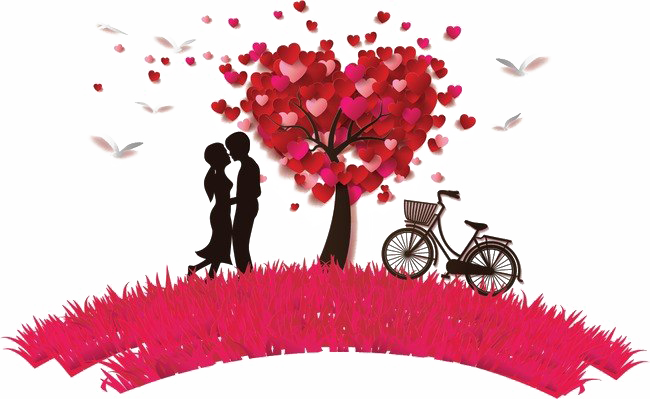Abusive relationships can take many different forms, but they all involve one partner exerting power and control over the other through physical, emotional, or sexual abuse. These types of relationships can be seriously damaging and can have long-lasting effects on the victim’s mental and physical health.
One common form of abuse in a relationship is physical abuse. This can include hitting, punching, slapping, or pushing. Physical abuse can cause physical injuries, such as bruises, cuts, or broken bones, as well as long-term health problems, such as chronic pain or disability.
Emotional abuse is another form of abuse that can be just as damaging as physical abuse but can be more difficult to recognize. Emotional abuse involves one partner using verbal or non-verbal tactics to control the other partner’s behavior or manipulate their emotions. This can include insults, belittling, gaslighting, or isolating the victim from their friends and family.
See Also: 10 Glaring Signs of a Toxic Relationship
Sexual abuse is also a form of abuse that can occur in a relationship. This can include unwanted sexual advances, sexual coercion, or sexual assault. Victims of sexual abuse often experience feelings of shame and guilt, and may struggle with intimacy and trust in future relationships.
Abusive relationships can have a profound impact on the victim’s mental health, leading to anxiety, depression, and post-traumatic stress disorder (PTSD). Victims may also experience physical symptoms, such as headaches, stomach problems, and insomnia.
Abusive relationships can be hard to identify, especially for the victim, who may feel like they are responsible for their partner’s actions. However, it is important to recognize the signs of an abusive relationship so that the victim can seek help and safety. Here are 20 signs of an abusive relationship.
20 Signs Of An Abusive Relationship
1. Control: An abusive partner will try to control everything in their partner’s life, from what they wear to who they see and what they do.
2. Jealousy: An abusive partner will be jealous of anyone who their partner interacts with, even their friends and family members.
3. Isolation: An abusive partner will try to isolate their partner from their support system, making it difficult for them to seek help.
4. Blame: An abusive partner will blame their partner for everything that goes wrong in the relationship, even if it is not their fault.
5. Gaslighting: An abusive partner will try to make their partner doubt their own sanity by denying things that happened or making them feel crazy.
6. Verbal Abuse: An abusive partner will use words to hurt their partner, calling them names or using belittling language.
7. Threats: An abusive partner will use threats to control their partner’s behavior, including physical violence, leaving the relationship, or harming themselves.
8. Physical Abuse: An abusive partner may use physical violence to control their partner, including hitting, slapping, or pushing them.
You Might Like: 12 Relationship Expectations That Could Ruin Your Love Life
9. Sexual Abuse: An abusive partner may use sex as a way to control their partner, including forcing them to have sex or perform sexual acts they are not comfortable with.
10. Intimidation: An abusive partner may use intimidation tactics to control their partner, including making them feel afraid or unsafe.
11. Emotional Manipulation: An abusive partner may manipulate their partner’s emotions to control their behavior, making them feel guilty or ashamed.
12. Financial Control: An abusive partner may control their partner’s finances, making it difficult for them to leave the relationship.
13. Stalking: An abusive partner may stalk their partner, including following them or monitoring their activities.
14. Drug and Alcohol Abuse: An abusive partner may use drugs or alcohol as a way to control their partner or to excuse their behavior.
15. Mood Swings: An abusive partner may have extreme mood swings, going from loving to angry or violent in a short amount of time.
16. Isolation from Friends and Family: An abusive partner may try to isolate their partner from their support system, making it difficult for them to seek help.
You Might Also Be Interested In: Break Up – 10 Habits That Could Result in a Jilt in Relationship
17. Lack of Trust: An abusive partner may have a lack of trust in their partner, accusing them of cheating or lying without evidence.
18. Controlling Access to Technology: An abusive partner may control their partner’s access to technology, including their phone or computer.
19. Lack of Empathy: An abusive partner may not show empathy for their partner’s feelings or needs.
20. Feeling Trapped: An abusive partner may make their partner feel trapped in the relationship, making it difficult for them to leave.
It can be difficult for victims of abusive relationships to leave their partners, as they may feel trapped or unable to escape. However, it is important to seek help if you are in an abusive relationship. This can involve reaching out to a trusted friend or family member, seeking therapy or counseling, or contacting a domestic violence hotline.
These types of relationships can be incredibly damaging and can have long-lasting effects on the victim’s mental and physical health. It is important for victims to seek help and support in leaving an abusive relationship and rebuilding their lives.
Conclusion
Abusive relationships can take many forms and can be hard to identify. It is important to recognize the signs of an abusive relationship so that the victim can seek help and safety. If you or someone you know is in an abusive relationship, seek help immediately. There are resources available to assist in leaving an abusive relationship and to ensure safety.


